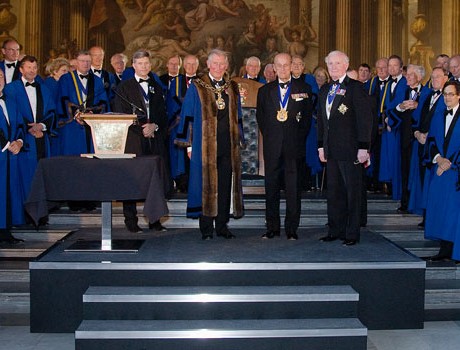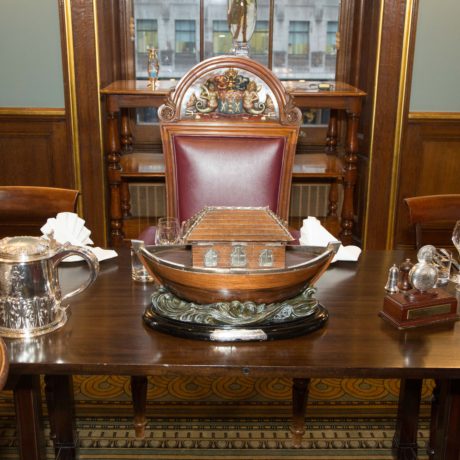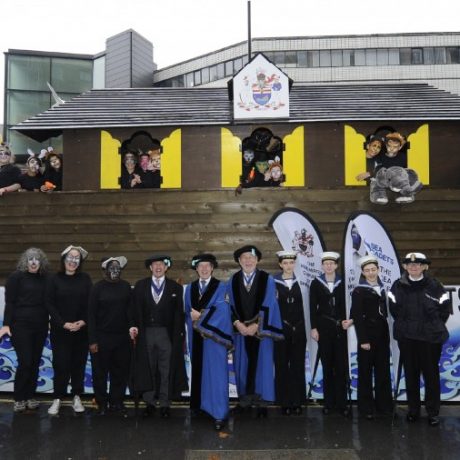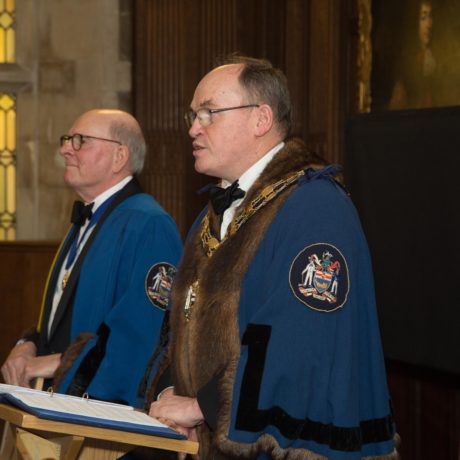Governance

The Company's Board or Governing Body is the Court of Assistants, which in accordance with Ordinance 9, consists of the Permanent Master (if there is one), the Prime Warden (or Master if there is no Permanent Master), four Wardens, and 25 Assistants, together with all Past Prime Wardens. The Court meets in full session five times a year, whilst the Wardens Committee, which acts as the executive committee, consisting of the Prime Warden and Wardens, the two immediate Past Prime Wardens, and the Honorary Treasurer, meets four times a year.
There are two subordinate spending Committees; the Finance Committee and the Education & Charity Committee. Both are chaired by a Court Assistant and have volunteer Liverymen members who serve four years in post. The Prime Warden and Immediate Past Prime Warden sit ex-officio on both committees whilst the Renter Warden and Third Warden are ex-officio members of the Finance Committee and the Fourth and Fifth Wardens are ex-officio members of the Education and Charity Committee. The spending committees are largely autonomous within their budget, but report their proceedings up through the Wardens to the Court.
There is a Nomination Committee chaired by a Past Prime Warden and consisting of the Fifth Warden, a Court Assistant, and four Liverymen who advise the Wardens’ Committee on internal Company appointments.


The Company has a full-time Clerk who is the Chief Executive of the Company and ex officio secretary to the Committees, Wardens, and the Court.
The Assistant to the Clerk provides administrative support and there is also a part time Office Assistant who assists with the clerical work, the administration of the Queen’s Silver Medal Competition and the Billmeir Award Schemes, and keeps the website up-to-date. The Shipwrights' Apprenticeship Scheme is administered by a full-time employee, the SA Scheme Manager, who manages the applications and assists companies joining the Scheme. The Company also has a Beadle who is responsible to the Clerk for the ceremonial elements of the Company programme.
In the absence of a Royal Charter, the Company's constitution is its Ordinances. The oldest surviving version of the Ordinances is dated 1428, but they were most recently revised in 2016 and approved by the Court of Aldermen of the City of London in 2017.
The Court promotes Liverymen to fill vacancies in its own ranks. On average, a newly-promoted Assistant may anticipate becoming Fifth Warden eight years and Prime Warden thirteen years later. A flexible approach is adopted to the maximum age of an Assistant joining the Court and to the age by which it is viewed desirable for a Warden to reach the chair. The age 70 maximum historically applied for the chair should be viewed as a guideline, to be exceeded if the Court deem the circumstances appropriate.

The Company's administrative and financial year runs from 1st May to the following 30th April.












